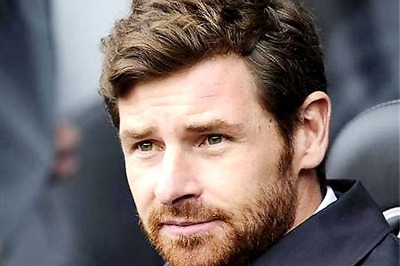
views
“Patriotism is not a concept to be learnt, it’s something you feel.”
As study became decoupled from experience, learning retreated into the head; schooling became all about thought at the expense of feeling and action. School curricula are now more designed for computation or regurgitation goals rather than behavioral outcomes. But as we know real learning needs to descend from the head, into the heart, hands, and feet and become a part of a student’s living experience, the young human’s being.
WHY PATRIOTISM?
Having said that, one thing school has going for it is a unique place in society as a socializing centre. Especially critical in the growing adolescence years is the experience of living together, relating with others, learning about the self by acting, and getting feedback from the world.
These form a very important component of 21st-century life skills and are enshrined in the constitution as constitutional values, duties, and rights. Not only from a view of self-development but also from the angle of the community collaborating to reach its full potential, the study of this common story shared by all Indian Citizens has been deemed imperative and thus devolved into compulsory civics classes for all adolescents.
Unfortunately, the regurgitation goals and rote learning methodology don’t suit the constitution as an object of study because, in its essence, it is a living document that has to be understood, enacted, and contested in the corridors of the school and in the streets of India, not inside the four walls of a classroom or on the pages of an academic textbook.
For this reason, we need to make the existing civics lessons come alive by incorporating a feeling and experiencing element into curriculums. Students need to not only learn but also love the values, not only read lessons about rights and duties but also live them in the school and in the neighborhood. Practitioners of youth-centric development believe that when reason encounters feelings, the student of the constitution turns into a true patriot; when civic experience fuses with words, the adolescent human becomes an active citizen.
WHAT IS THE RIGHT AGE TO FEEL PATRIOTIC?
There is no right age to live liberty, equality, justice, and fraternity or rather every age is right to experience them. The trick when talking about patriotism is not to give the youngsters knowledge but to create a space whereby they take ownership of the country’s only common story.
How to do this? By letting students in every grade interpret the constitutional values for themselves and to adjust and recalibrate this understanding in the mirror of their relationship with the ‘other’, may it be in school, family or neighborhood.
So, by using the socialization centre paradigm of a school, patriotism becomes about respecting your fellow country boys and girls and everyone in between. From around seven years old, an age by when one has decent language/ literacy (language is at the heart of communication, making things common) that allows one to be curious about others, understand them, empathise with them, influence them and collaborate with them.
HOW CAN A PATRIOTISM CURRICULUM BE TRANSLATED?
Charcha, choices and change-making could be the vehicles for the imbibing of patriotism by the students. Triggered discussions and activities could lead to options that the young people have to choose from and then reflect on how they made their decisions (or did not.) Additionally, all through the year, they could make small changes through group actions as well as be the change by performing self-tasks.
The evaluation need not be a typical exam. Changes in knowledge, skills, and behaviours assessed on a pre and post-spectrum while attitude and value shifts could be self-reported retrospectively. This can be triangulated by the experience of teachers and parents with the students. Youth centric development practitioners believe this focus on feeling literacy will have ripple ramifications on their overall studies and experience at school. Because if we can make an adolescent feel right, they will automatically think right.
— The author is Co-Founder, ComMutiny – The Youth Collective, Pravah; Representing member organisations in the curriculum committee developing the Deshbhakti curriculum for Delhi government schools
Read all the Latest News, Breaking News and Coronavirus News here. Follow us on Facebook, Twitter and Telegram.




















Comments
0 comment